Beyond academics, successful applicants are encouraged to be well-rounded. Health professional schools encourage students to pursue these experiences:
Note: experiences marked with an asterisk (*) are typically required.
Clinical
Why are clinical experiences important?
Before pursuing a healthcare program, you must demonstrate that the career is the correct fit for you. It’s not enough to assume that it’s the right fit; admissions committees want to see proof that you’ve explored the profession. You should observe and interact with healthcare providers and patients and understand the full scope of what it means to practice.
How much clinical experience do I need?
While some health profession programs have minimum direct patient care experience requirements (for example, PA schools typically want to see 1000-4000 hours), other programs do not list a specific number. It’s important to check with the schools you’re applying to to ensure you’re meeting their minimum/average requirements.
You should gain suitable clinical experiences to demonstrate your fit and understanding of the profession. Ideally, you would have at least 150 hours of clinical experiences, with the majority of those experiences being direct patient care. Having more hours of clinical experience is only going to help you be a stronger applicant.
Meaningful Direct Patient Care Experiences
Some healthcare experiences have more patient interaction than others. While non-patient care experiences can be impactful, many health profession programs want to see direct patient care experiences. In your application, it’s important to include a detailed and accurate overview of your responsibilities and ways that you interact with patients.
- Please note that some positions require advanced training or certification in order to be eligible for the position. George Mason doesn’t offer certifications, but local community colleges, technical colleges, and/or online colleges do.
- In general, it’s best to look for a patient care position that will work with/under the provider in your field of interest.
- For example, if you plan to go to medical school, look for a position that works directly with physicians and human patients. While you might gain general healthcare experience working with a dentist, pharmacist, or veterinarian, those are separate career paths from medical school and won’t give you directly relevant experience.
- For example, if you plan to go to medical school, look for a position that works directly with physicians and human patients. While you might gain general healthcare experience working with a dentist, pharmacist, or veterinarian, those are separate career paths from medical school and won’t give you directly relevant experience.
- Research patient care positions here to learn more about the responsibilities and training/certification entailed.
Here are some common positions that are and are not considered direct patient care. Please note this is not an exhaustive list and it’s always recommended to check directly with the schools you plan to apply to.
Direct Patient Care:
- Free Clinic Volunteer
- Hospice Volunteer
- Medical Mission Trip Participant
- Rehab or Nursing Center Assistant
- Certified Nursing Assistant (CNA)
- Home Care Health Aide
- Nurse’s Aid
- EMT/EMS/Rescue Squad
- Paramedic
- Medical Assistant
- Medical Translator
- Phlebotomist
- Clinical Research Assistant
- Athletic Trainer Assistant
- Physical Therapy Assistant
- Dental Hygienist
- Veterinary or Pharmacy Tech (if counseling patients is involved)
Not Direct Patient Care:
- CPR or ACLS instructor
- Insurance Clerk
- Life Guard
- Patient Sitter
- Patient Transporter
- Pharmaceutical Representative
- Researcher with no patient care contact
- Shadowing
- Ski Patroller
- Student Clinical Experience
- Unit Clerk
- Wilderness Medicine Instructor
- Medical Administrative Assistant
Paid Healthcare Experiences
See the Meaningful Direct Patient Care Experiences tab above for a list of healthcare positions.
Check Handshake or other job sites such as LinkedIn Jobs, Indeed, Monster, or other job search sites for local listings.
Scribe:
http://vemascribes.com/
https://www.scribeamerica.com/
https://www.scribekick.com/
Medical Scribe Companies
Virtual Scribe Companies
EMT/EMS:
http://www.fcvfra.org/recruit/training/emt-only/
https://www.vdh.virginia.gov/emergency-medical-services/oems-training-classes
https://gwtrainingcenter.com/events/6-accelerated-summer-emt-program-2026-006
Volunteer Healthcare Experiences
Below is a list of local, national, and international opportunities to volunteer in a healthcare setting.
Free Clinics in Virginia:
https://www.vafreeclinics.org/content.asp?contentid=141
NOVA Free Clinics:
Adams Compassionate Health Care Network, Chantilly: https://achnhealth.org/index.php/achn_volunteers/
Loudon Free Clinic, Leesburg: https://loudounfreeclinic.org/volunteer/
Prince William Area Free Clinic Unified Health Center, Woodbridge: http://www.pwafcw.comcastbiz.net/
Arlington Free Clinic, Arlington: https://arlingtonfreeclinic.org/get-involved/volunteer/
Catholic Charities of the Diocese of Arlington Mother of Mercy Free Medical Clinic, Manassas: https://volunteer.ccda.net/recruiter/index.php?class=OppSearchResults&recruiterID=501&orgid=1078&type=all
Culmore Clinic, Falls Church: http://www.culmoreclinic.org/volunteer/4593821555
Hospice:
Heartland Hospice: https://www.gentivahs.com/careers/volunteers/
Capital Caring: https://www.capitalcaring.org/get-involved/become-a-volunteer/
Fairfax Area Agency on Aging: https://www.fairfaxcounty.gov/familyservices/older-adults/volunteer-solutions
Legacy Hospice: https://legacy-hospice.com/volunteers.php
Hospital volunteering:
Inova: https://www.inova.org/get-involved/volunteer/index.jsp
UVA Health: https://uvahealth.com/services/volunteer/prince-william
Walter Reid: https://www.wrnmmc.capmed.mil/PatientVisitors/SitePages/Career/Volunteer.aspx
Children’s National: https://childrensnational.org/choose-childrens/deciding-on-care/support-for-families/volunteer
Walter-Whitman: https://www.whitman-walker.org/volunteer
MedStar Washington: https://www.medstarwashington.org/ways-to-give/
Dental Volunteering:
Mission of Mercy: https://www.vdaf.org/volunteer.html
NOVA Dental Clinic: http://www.novadentalclinic.org/volunteers/
Pre-Vet Volunteering:
National Zoo: https://nationalzoo.si.edu/support/volunteer
Fairfax Animal Shelter: https://www.fairfaxcounty.gov/animalshelter/volunteer
Fairfax County Humane Society: https://hsfc.org/support/volunteer/
Optometry Volunteering:
Volunteer Optometric Services to Humanity: http://vosh.org/get-involved/clinics/
The Metropolitan Washington Ear: https://washear.org/volunteers/#volunteer-opportunities
Columbia Lighthouse for the Blind: https://www.clb.org/get-involved/volunteer/
National volunteer opportunities:
http://www.vdh.virginia.gov/mrc/
https://www.rainn.org/volunteer
International volunteer opportunities:
Shadowing
Shadowing vs. Clinical/Direct Patient Care Experiences
Shadowing is a natural starting point for students exploring health professions. Shadowing is a passive act; you observe a healthcare provider in their day to day responsibilities and while you may be able to talk to the provider about the choices they make in their job, you are not directly interacting with or assisting patients.
Direct patient care experiences allow you to interact with and assist patients. While direct patient care experiences can be volunteer-based or paid, there is typically an application and/or interview process and some training required. You will not be assisting patients at the same level as a healthcare provider, but you will be making an impact on the patient’s health and well-being.
How can I find shadowing experiences?
1. Utilize your network: Ask your personal healthcare provider or a family member’s provider if they would be willing to allow you to shadow. If you have friends who have shadowed with a provider, ask for their contact details. Join a student organization and connect with speakers and presenters through that organization. If you work/volunteer in a healthcare setting, ask providers there to connect you with their colleagues.
2. Reach out to providers in local clinics/hospitals: While this might be daunting, time consuming, and require you to reach out through multiple methods (emailing, calling, or visiting the clinic in person), cast a wide net and be persistent and professional.
3. Connect with alumni: If you have a LinkedIn account, search for George Mason alumni who are in a career that you’re hoping to pursue or who attended a health profession school you might be interested in. Reach out with a message or connect through LinkedIn.
In your LinkedIn profile, make sure you have a professional picture, information about your major and career aspirations, and updated contact information.
Here’s a guide to connecting with alums on LinkedIn.
Career Services Resources
Summer Shadowing Opportunities:
See the Summer Opportunities section further down this page
Other Shadowing Experiences:
Doctor of Osteopathic Medicine (DO) Shadowing Database: https://doctorsthatdo.org/
Shadow Physicians at Inova Hospitals: https://www.inova.org/education/student-educational-opportunities/physician-observerships
Doctor of Podiatric Medicine (DPM) Shadowing Database: www.dpmnetwork.org
AAMC Shadowing a Doctor Guide: https://students-residents.aamc.org/aspiring-docs-fact-sheets-get-experience/shadowing-doctor
Virtual Shadowing
Virtual clinical experiences will never replace in-person experiences, but they can be a useful way to explore healthcare professions. As we get back to normal, it will still be very important for you to gain mostly in-person experiences in order to be a competitive applicant.
Medical Virtual Shadowing:
https://webshadowers.wixsite.com/website
https://virtualshadowing.com/shadowing-sessions
https://www.prehealthshadowing.com/
https://www.sociallydistancedshadowers.com/
https://www.clinicalshadowing.com/
https://medicalschoolhq.net/eshadowing/
https://contactisprteam.wixsite.com/ispr
https://www.prehealthshadowing.com/sessions/
Wilderness Medicine Speaker Series: https://sites.google.com/view/umwildernessmedicine/home
OT Shadowing: https://www.umc.edu/shrp/Occupational%20Therapy/Admissions/2021%20OTD%20Applicant%20Virtual%20Observation%20Information.html
https://padlet.com/kirsten_davin/sbswt3wowat9n6r7
PA Shadowing: https://www.instagram.com/ap.the.pac/
PT Shadowing: https://preptgrind.mykajabi.com/virtual-observation-hours
Speech Language Pathology Shadowing: https://www.masterclinician.org/
Volunteer
Why are volunteering experiences Important?
To become a healthcare provider, you must not only be academically capable but you must have the heart to care for patients. Professional schools are looking for evidence that you’re altruistic, selfless, and compassionate. Volunteering is a great way to help others in need, serve your local community, and gain perspective and skills that will help you in your future career.
How much volunteering experience do I need?
The quality of your volunteering experiences is more important than the quantity. It’s better to find one or two projects that you’re passionate about and have a long-term commitment to those projects, rather than get involved in numerous short-lived projects.
While it’s important to check the schools you’re applying to to see if they have recommended minimum volunteer hour requirements, you should aim to have at least 150 hours of community service. Having more volunteering hours is only going to help you be a stronger applicant.
Should my volunteering experiences be in healthcare settings?
Ideally, you would have a variety of volunteering experiences that are both directly and indirectly related to healthcare.
Some professional schools want to see non-healthcare related volunteer experiences, whereas other schools do not have a preference. Choosing to volunteer in a non-healthcare setting can demonstrate that you are truly invested in serving others. Volunteering in a healthcare setting allows you to gain experiences that can affirm your fit for the profession and allows you to network with other healthcare providers, all while assisting patients’ health and well-being.
Non-Healthcare Volunteer Experiences
On Campus Opportunities:
Community Volunteer Opportunities: http://masongivesback.onmason.com/opportunities/
Patriot Pantry: https://ssac.gmu.edu/patriot-pantry/
Peer Mentoring for MASI program: https://ds.gmu.edu/masi/
George Mason Affiliated Opportunities
Community Engagement & Civic Learning (CECIL): https://cecil.gmu.edu/students/getting-involved-community/community-partner-information-list
Local and National Volunteer Opportunities:
Volunteer Opportunities in Fairfax County: http://www.volunteerfairfax.org/
National Volunteer Opportunities by Zip Code: https://www.volunteermatch.org/
Kids Enjoy Exercise Now (KEEN): keengreaterdc.org
Big Brothers/Big Sisters: https://www.bigbrobigsis.com/
Loudoun Volunteer Caregivers: https://lvcaregivers.org/volunteers/
Habitat for Humanity: https://www.habitat.org/
Red Cross: https://www.redcross.org/local/virginia/volunteer.html
Special Olympics: https://www.specialolympicsva.org/get-involved/volunteer
Peace Corps: https://www.peacecorps.gov/
AmeriCorps: https://www.nationalservice.gov/programs/americorps
Local Shelters:
Shelter House: https://www.shelterhouse.org/donate-time/
Cornerstones: https://www.cornerstonesva.org/on-goingopportunities/
New Hope Housing: https://www.newhopehousing.org/get-involved/
Local Food Pantries/Kitchens:
Fairfax County: https://www.foodpantries.org/ci/va-fairfax
FACETS: http://facetscares.org/
Ecumenical Community Helping Others: https://nativityburke.org/service/echo/
Food for Others: https://www.foodforothers.org
Lorton Community Action Center: https://lortonaction.org/healthy-families/,
Domestic and Sexual Violence Services:
Fairfax County: https://www.fairfaxcounty.gov/familyservices/domestic-sexual-violence/voices/volunteer-opportunities
Northern VA Family Service: https://www.nvfs.org/get-involved/
Bethany House of Northern VA: https://www.bhnv.org/volunteer
Doorways for Women and Families: https://www.doorwaysva.org/join-our-cause/volunteer/
Therapeutic Riding:
https://simplechanges.org/volunteer/
Virtual Volunteering
-Register and volunteer through the Virginia Medical Reserve Corps.
-Sign up to join the Contact Tracer Registry to assist with testing efforts near your home.
-Look for online volunteer opportunities and other ways to help others. Some ideas include being trained as a Crisis Counselor for the Crisis Text Line, being a sighted volunteer for blind or low-vision individuals, or if you speak another language, signing up as a translator for Translators Without Borders.
Research
How do I find research opportunities?
There are many ways to get involved with research.
- Informally, reaching out to a professor you’ve had in class or in your department. Look up the professor on the department website to see what their research area is and what projects they’re working on. It doesn’t hurt to stop by their office hours to chat or reach out via email. Chat with your peers, your academic advisor, and your professors to see if anyone in your network is aware of research opportunities.
- Formally, get involved in research through the OSCAR office or sign up for a research intensive course.
- Think beyond George Mason. Students get involved in research (especially over the summer) at local medical schools, hospitals, private lab/research centers, and even with the government.
Check the tab below for ways to get started.
Research Opportunities
On Campus:
Office of Student Scholarship, Creative Activities, and Research: https://oscar.gmu.edu/
- Consider starting your own research project by finding a faculty mentor and submitting a Undergraduate Research Scholars Program (URSP) proposal to receive funding
College of Science
- Research Opportunities: https://science.gmu.edu/research/opportunities
- Biology Fall Research Semester: https://biology.gmu.edu/research/fall-research-semester/
- Chemistry: https://science.gmu.edu/academics/departments-units/chemistry-biochemistry/research
- Neuroscience: https://science.gmu.edu/academics/departments-units/neuroscience/research-and-centers
College of Health and Human Services:
- https://chhs.sitemasonry.gmu.edu/research
- Community Health: https://publichealth.gmu.edu/research/faculty-research-interests
Other:
- Psychology: https://psychology.gmu.edu/research/undergraduate-research
- Bioengineering:
Local opportunities:
National Institutes of Health (NIH): https://www.training.nih.gov/programs
National Alliance of Research Associate Programs (NARAP) for clinical research: https://www.thenarap.org/
Oak Ridge Institute for Science and Education: https://orise.orau.gov/index.html
Lysosomal Center:https://lysosomalcenter.org/index.php
Do I have to do research in the sciences?
No, research can be done in any discipline and still be meaningful to your application.
Summer
Local Opportunities
Research
GMU Summer Team Impact Projects: https://provost.gmu.edu/academics/undergraduate-education/mason-impact/summer-team-impact-projects
GW Summer Program Advancing Research on Cancer (GW-SPARC): https://smhs.gwu.edu/research/research-workforce/undergraduate-research/gw-summer-program-advancing-research-cancer-gw
Inova Advanced Lung Disease and Transplant Program Summer Student Research Internship: https://www.inova.org/our-services/inova-lung-services/research/summer-student-internship
NIH Summer Internship Program (SIP): https://www.training.nih.gov/research-training/pb/sip/
Shadowing/Professional Development
Anderson Orthopaedic Clinic Shadowing Program: https://andersonclinic.com/education/shadowing/
Inova Trauma Acute Care Surgery Externship: https://www.inova.org/education/student-educational-opportunities/trauma-acute-care-surgery-externship
Summer Health Professions Education Program: http://www.shpep.org/
VCU Allied Health Career Exploration (AHCE): https://dsei.vcu.edu/paths/programs/college/allied-health-career-exploration-ahce/
VCU Summer Academic Enrichment Program (SAEP): https://dhsd.vcu.edu/programs/college/summer-academic-enrichment-program-saep/
UVA Summer Medical Leadership Program: https://med.virginia.edu/bims/programs/summer-medical-leadership-program/
Research + Shadowing
Anderson Orthopaedic Clinic Summer Externship Program: https://andersonclinic.com/education/summer-internship/
Georgetown University Academy for Research, Clinical, and Health Equity Program (ARCHES): https://som.georgetown.edu/diversityandinclusion/guarches/
Children’s National Emergency Department Clinical Research Undergraduate Internship: https://www.childrensnational.org/for-healthcare-professionals/healthcare-education/research-education/emergency-department-clinical-research-internship
Additional Opportunities
Research
Weill Cornell Medicine Summer Research Fellowship (WCMSRF): https://teach.weill.cornell.edu/medical-education/programs/summer-research-fellowship
University of Miami Student Training in Research (STIR) Program: https://med.miami.edu/landing-pages/collaborative-programs/students-training-in-research-(stir)
Translational Neurobiology Summer Undergraduate Research Fellowship: http://fralinbiomed.info/neurosurf
Shadowing/Professional Development
Duke Summer Discovery Program (SDP) for Physical Therapy: https://medschool.duke.edu/education/health-professions-education-programs/doctor-physical-therapy-program/diversity-equity/summer-discovery-program
University of Miami Health Careers Motivation Program: https://med.miami.edu/lp/collaborative-programs/health-careers-motivation-program
Optometry Summer Opportunities: https://optometriceducation.org/diversity/optometry-summer-programs/
Test Prep
University of Miami MCAT Preparation Program (fully remote): https://med.miami.edu/lp/collaborative-programs/mcat-preparation-program
Research + Shadowing
Boston University Summer Program in Neuroscience (SPIN): https://sites.bu.edu/spin/
Columbia-WHO Center for Global Mental Health Summer Internship (fully remote): https://www.ccgmh.org/initiatives/undergraduate-summer-internship
Volunteer
PALS: https://www.palsprograms.org/volunteers
Additional Directories
AAMC Listing: https://services.aamc.org/summerprograms/
AAMC Listing (research): https://www.aamc.org/professional-development/affinity-groups/great/summer-undergrad-research-programs
NAAHP Listing: https://www.naahp.org/student-resources/summer-opportunities
Student Organizations – Leadership
Where can I find George Mason student organizations?
George Mason student organizations can be explored through Mason360: https://mason360.gmu.edu/home_login or on social media platforms (ex. Instagram).
Why should I join a student organization?
Joining student organizations is optional, but it is a great way to:
- Become active in the organization which can potentially lead to a leadership role.
- Meet likeminded peers, connect with older students who have insight into pre-health opportunities and classes, and build your pre-health network.
- Participate in social, volunteering, and professional experiences that can enhance your application.
Which student organizations have a Pre-Health Focus?
A number of student organizations have a pre-health focus. This is not an exhaustive list, so please check Mason360.

American Medical Women’s Association (AMWA)
Mason360: https://mason360.gmu.edu/amwa/home/
Instagram: https://www.instagram.com/amwagmu/
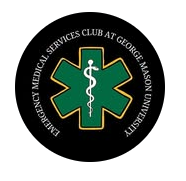
Emergency Medical Services Club
Mason360: https://mason360.gmu.edu/ems/home/
Instagram: https://www.instagram.com/emsclub_gmu/

Girls In Health
Mason360: https://mason360.gmu.edu/gih/home/
Instagram: https://www.instagram.com/gmu_girlsinhealth/

Kinesiology Club
Mason360: https://mason360.gmu.edu/mkc/home/
Instagram: https://www.instagram.com/gmukineclub/
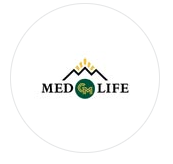
MEDLIFE
Mason360: https://mason360.gmu.edu/MEDLIFEatGMU/
Instagram: https://www.instagram.com/medlifeatgmu/
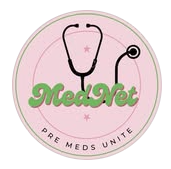
MedNet; Premeds Unite
Mason360: https://mason360.gmu.edu/mednet/home/
Instagram: https://www.instagram.com/mednetgmu/
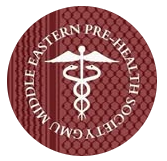
Middle Eastern Pre-Health Society
Mason360: https://mason360.gmu.edu/meps/home/
Instagram: https://www.instagram.com/mepsgmu/

Next Gen White Coats
Mason360: https://mason360.gmu.edu/ngwc/home/
Instagram: https://www.instagram.com/ngwc_gmu/
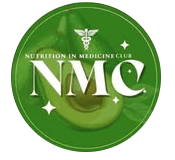
Nutrition in Medicine
Mason360: https://mason360.gmu.edu/nmc/home/
Instagram: https://www.instagram.com/nmc.gmu/

Premedical Society
Mason360: https://mason360.gmu.edu/PreMed/
Instagram: https://www.instagram.com/premed_gmu/

Pre-Dental Society
Mason360: https://mason360.gmu.edu/pds/home/
Instagram: https://www.instagram.com/gmupredental/
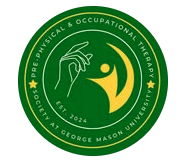
Pre-Physical & Occupational Therapy Society
Mason360: https://mason360.gmu.edu/pots/home/
Instagram: https://www.instagram.com/gmu.pots/

Pre-Optometry Club
Mason360: https://mason360.gmu.edu/preopt/home/
Instagram: https://www.instagram.com/optometrygmu/

Pre-Pharmacy Honor Society
Mason360: https://mason360.gmu.edu/pphs/home/
Instagram: https://www.instagram.com/gmuprepharmhs/

Pre-Physician Assistant Society
Mason360: https://mason360.gmu.edu/prepas/home/
Instagram: https://www.instagram.com/gmuprepas/

Pre-Veterinary Club
Mason360: https://mason360.gmu.edu/prevet/home/
Instagram: https://www.instagram.com/prevetgmu/

Remote Area Medical
Mason360: https://mason360.gmu.edu/ram/home/
Instagram: https://www.instagram.com/gmu.remoteareamedical/

United2Heal
Mason360: https://mason360.gmu.edu/u2h/home/
Instagram: https://www.instagram.com/united2healgmu/
What about student organizations outside Pre-Health?
You should join student organizations that interest you. Health professional schools don’t expect you to participate in only pre-health organizations. Sometimes having interests/passions outsides Pre-Health can make you a more unique applicant.
How many student organizations should I join?
That’s up to you and your schedule. Health professional schools don’t expect you to join tens or hundreds of organizations. They would prefer that you join fewer organizations and show a deeper commitment to them (quality over quantity).
